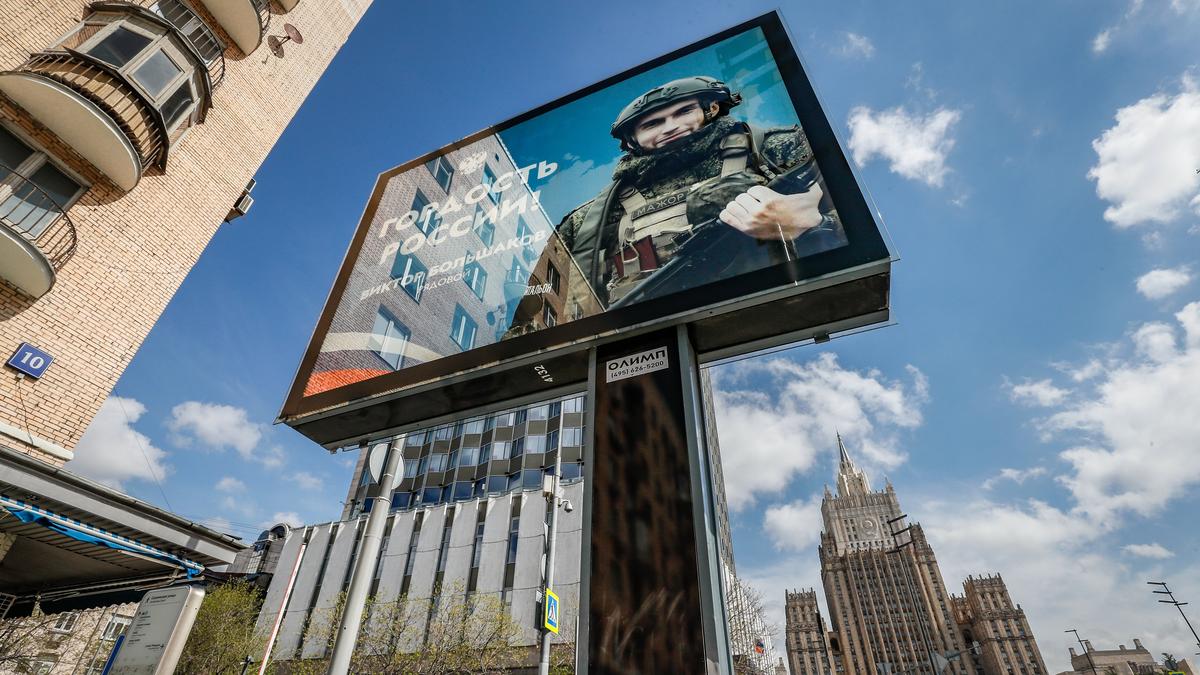In recent months, the Russian authorities have been conducting mass raids on factories and businesses across the country to track down migrants with Russian citizenship, with the aim of forcibly recruiting some of Russia’s most vulnerable citizens to fight in Ukraine.
The head of Russia’s Investigative Committee, Alexander Bastrykin, told last month’s St. Petersburg International Legal Forum that these “migrant raids” had allowed the security forces to identify over 30,000 newly naturalised Russian citizens who had failed to register for military service, adding that “about 10,000 detainees” had subsequently been sent to the frontlines in Ukraine. The raids were a “feature” of Russian migration policy, Bastrykin stressed, and more a method for boosting military recruitment than an effort to crack down on illegal immigration.
Russian human rights activists have criticised the recent uptick in police raids on businesses and educational facilities where migrants are frequently found, with mass document checks conducted near a warehouse outside Moscow used by leading Russian online retailer Wildberries and an auto-workers dormitory both receiving widespread attention.
Migrants without military registration marked on their documents are usually detained in these raids and taken directly to military recruitment centres.
According to international human rights group Memorial, immigration officers and military police have also conducted joint raids on restaurants, cafes, markets and construction sites with the intention of recruiting migrant workers for military service. Security inspections on mosques have also become increasingly frequent, stoking fears that ethnicity plays an increasing role in targeting raids.
Migrants without military registration marked on their documents are usually detained in these raids and taken directly to military recruitment centres, after which many report being sent to military units, often without even undergoing a medical examination.
During a raid on a mosque in the town of Kotelniki, near Moscow, Mamut Useinov, who became a Russian citizen following the annexation of his native Crimea in 2014, was arrested by immigration officers and regional riot police. According to Useinov, after being arrested, he and dozens of other Muslims were given the choice of either “signing a contract with the Defence Ministry and going to fight in Ukraine, or going to prison”. After refusing to comply with the Russian authorities, Useinov was forcibly taken to an active military unit where he was forced to undergo basic training.
Citizenship incentives
The mass military enlistment effort has targeted both legal and illegal migrants to Russia. In October 2023, amendments made to Russia’s nationality law came into effect, fast tracking the process of obtaining a Russian passport for citizens of former Soviet republics who enlist to serve in the military.
While marketed as a move to make Russia more migrant-friendly, the law is an extension of Russia’s increasingly anti-immigration policies and a wider crackdown on migration that has followed recent terror attacks, which effectively means that only migrants willing to perform military service will be granted Russian citizenship.
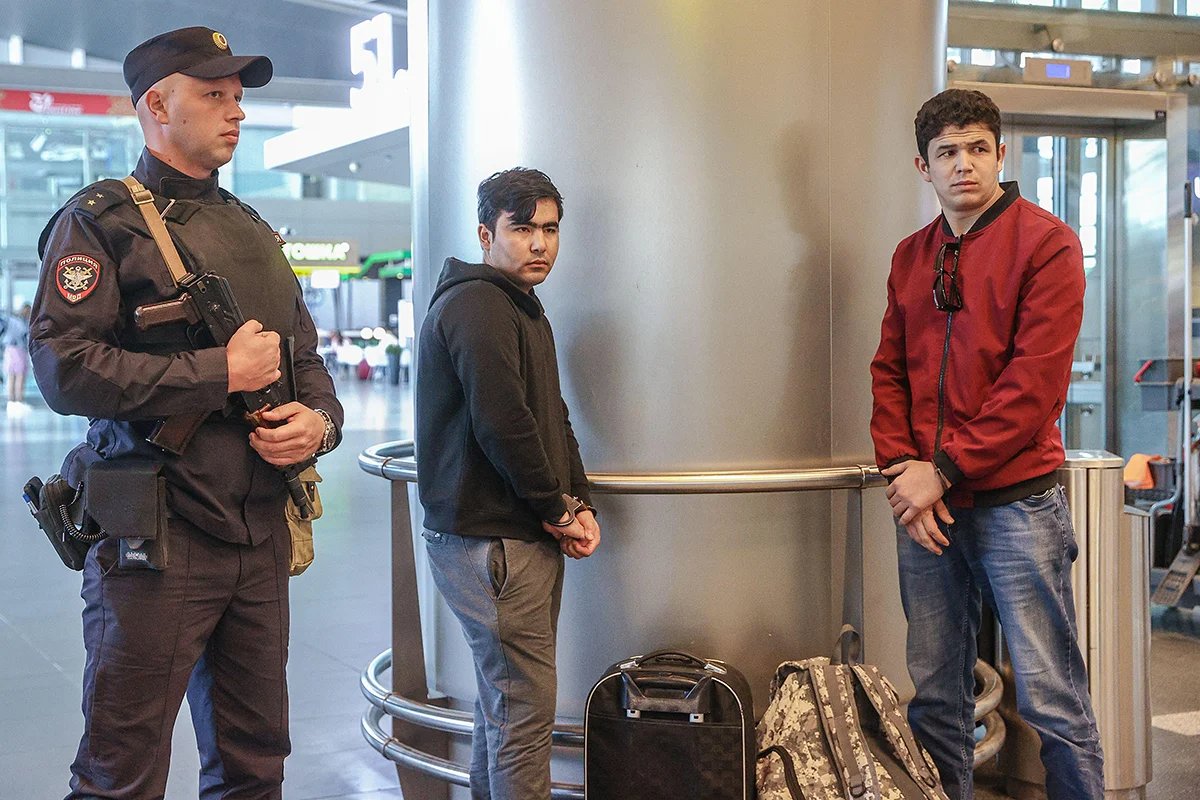
Police detain migrants at Moscow’s Vnukovo Airport. Photo: Alamy / Vida Press
According to Russia’s Interior Ministry, “the number of migrants held in special institutions and subject to administrative expulsion, deportation or extradition doubled” from 3,426 to 6,881 in the first quarter of the year. The so-called “special institutions” where migrants can be held in poor conditions for months or even years, are little more than prisons. Thousands of migrants are currently in such holding centres waiting to learn their fate.
Before Russia’s full-scale invasion of Ukraine, courts would often release illegal immigrants from detention for a small administrative fine. However, since the amendment of Russia’s nationality law, breaking migration rules has been punished far more severely, making paying one’s way out of detention far trickier, and the increasing number of raids carried out by immigration officers have led to an increasing number of migrants being placed in custody.
A video surveillance system developed by Russian software company Sphere that uses facial recognition technology to identify individuals who are in the country illegally — as well as to alert the authorities of potential dissent — has been installed in Moscow’s metro system.
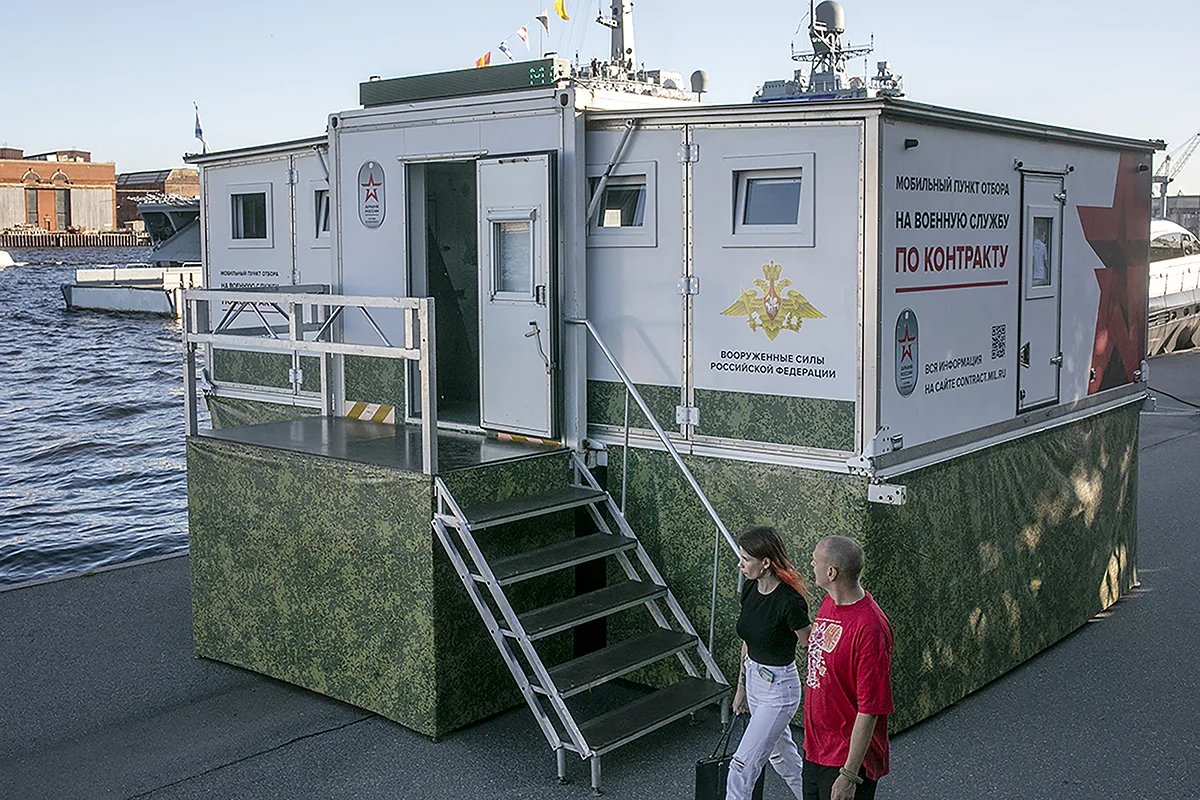
A mobile military conscription office in St. Petersburg. Photo: Dmitry Tsyganov
While a Russian human rights lawyer who spoke to Novaya Gazeta Europe anonymously said that the system was “designed to search for persons wanted on suspicion of committing crimes” and stressed that it was “illegal to use Sphere to detain other categories of citizens, including foreign ones, who have not committed any criminal offences and are not on the police wanted list”, lawyers who represent those detained for breaking immigration laws say that the vast majority of their clients are arrested in the metro.
Some of the lawyers providing legal assistance to migrants detained in the recent raids said that they thought the Russian authorities had carried out the raids specifically to test their facial recognition system, and that anyone who had already been identified by the software would remain vulnerable to detention due to their faces now being in the system. Lawyers who spoke with Novaya Gazeta Europe criticised the technology, citing concerns about serious human and civil rights violations.
“By raiding migrants, the authorities, on the one hand, are indulging the demands of the public, especially after the terrorist attack on Crocus City Hall.”
On June 4, Bastrykin cited figures showing that there had been an unprecedented 13% increase in crimes committed by migrants. According to Russia’s Investigative Committee, “the number of crimes committed by people living in the Russian Federation illegally more than tripled”, while the number of criminal cases against foreign citizens going to trial increased by a quarter in the first four months of 2024.
Bastrykin called for further police crackdowns to staunch the “migrant flow” and for more raids to tackle those already in the country illegally.
“By raiding migrants, the authorities, on the one hand, are indulging the demands of the public, especially after the terrorist attack on Crocus City Hall,” one lawyer told Novaya Gazeta Europe. But “on the other hand, these raids contribute to massive military recruitment”. Judges at illegal migration cases have even been known to begin the proceedings by telling the accused that they “have the right to enter into a contract for service in the Russian army.”
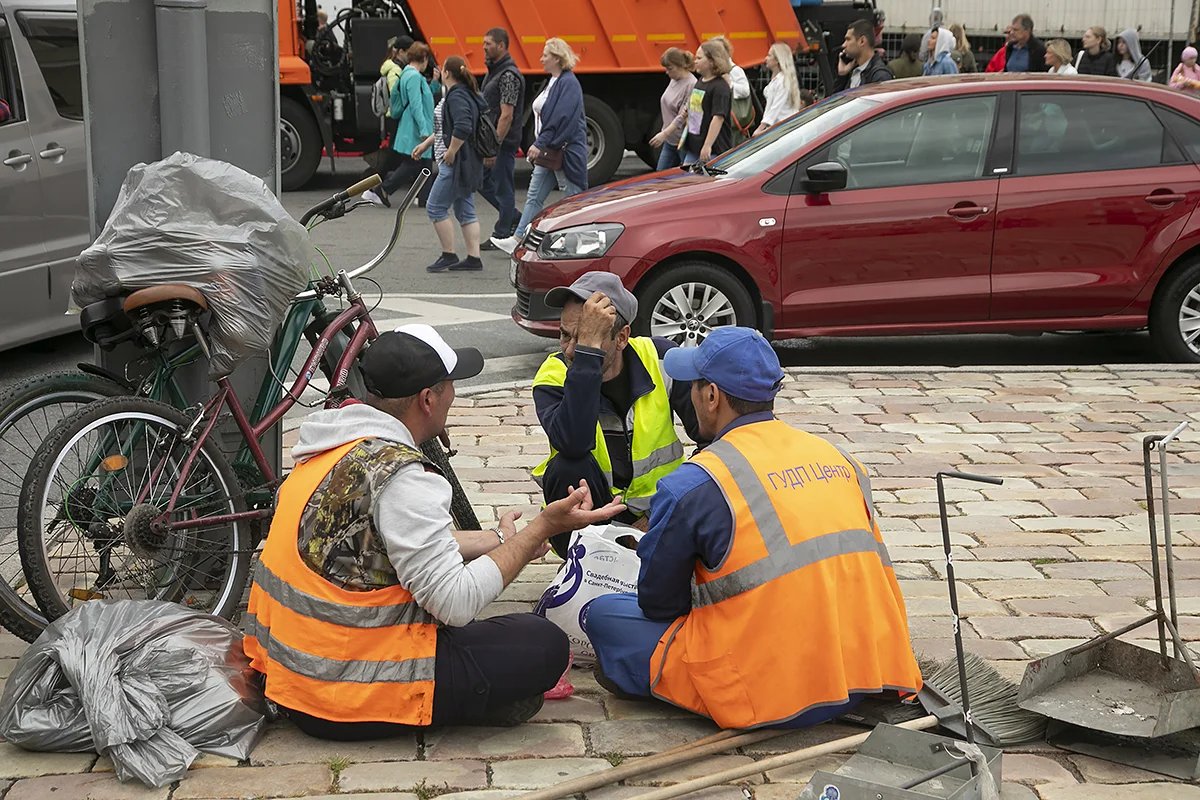
Migrant workers on the street of St. Petersburg. Photo: Dmitry Tsyganov
Foreign recruitment
Russian consulates in Latin America, Africa, the Middle East and the Asia-Pacific region have set up recruitment centres in an attempt to attract foreign workers from some of the world’s poorest countries to Russia. Despite being promised well-paid jobs in major Russian cities, a streamlined visa application process, that the Russian state will fund their flights to Russia, most of those who decide to make the journey eventually find themselves in the Russian army.
Ukrainian Intelligence, migrant testimony and, in some cases, the governments of the countries caught up in Russia’s recruitment strategy, have all documented this large-scale Russian recruitment effort in some detail.
In September, Cuba’s Foreign Ministry announced that it had uncovered a Russian recruitment scheme aimed at enlisting its citizens to fight in the war in Ukraine, which it called “an extensive human trafficking network”. Havana subsequently confirmed that it had brought criminal cases against 17 people it said had been involved in Russian recruitment efforts in Cuba.
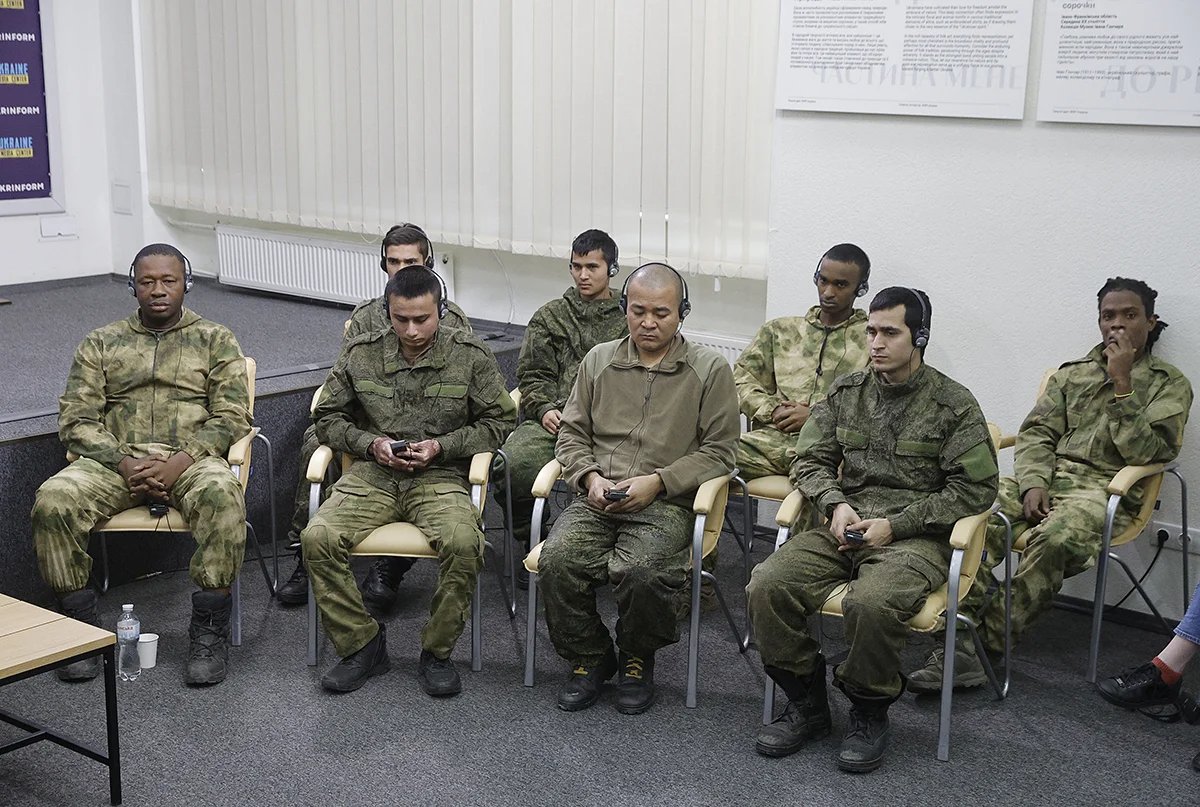
Foreign citizens captured by Ukrainian troops while fighting for the Russian military in Ukraine, 15 March 2024. Photo: Sergey Dolzhenko / EPA-EFE
Another country whose citizens were being covertly enlisted by the Russian army, was Nepal, which is believed to have at least 200 citizens fighting in Ukraine, according to Nepal’s Minister of Foreign Affairs, who added that at least 14 Nepali citizens were known to have died, while another five had been captured by the Armed Forces of Ukraine. Nepalese officials requested that Russia pay compensation to the Nepalese citizens killed in battle and make a concerted effort to free those being held as POWs by Ukrainian forces.
In India, students at several universities were targeted by recruiters posing as foreign employers offering job opportunities in Russia. However, once Mohammad Afsan, an Indian citizen, was killed on the front, Indian intelligence services and law enforcement opened criminal cases against those involved in the recruitment efforts. Nonetheless, thousands of legal and illegal migrants in Russia, as well as vulnerable people from some of the world’s poorest countries continue to be vulnerable to Russia’s underhand military recruitment strategies.
